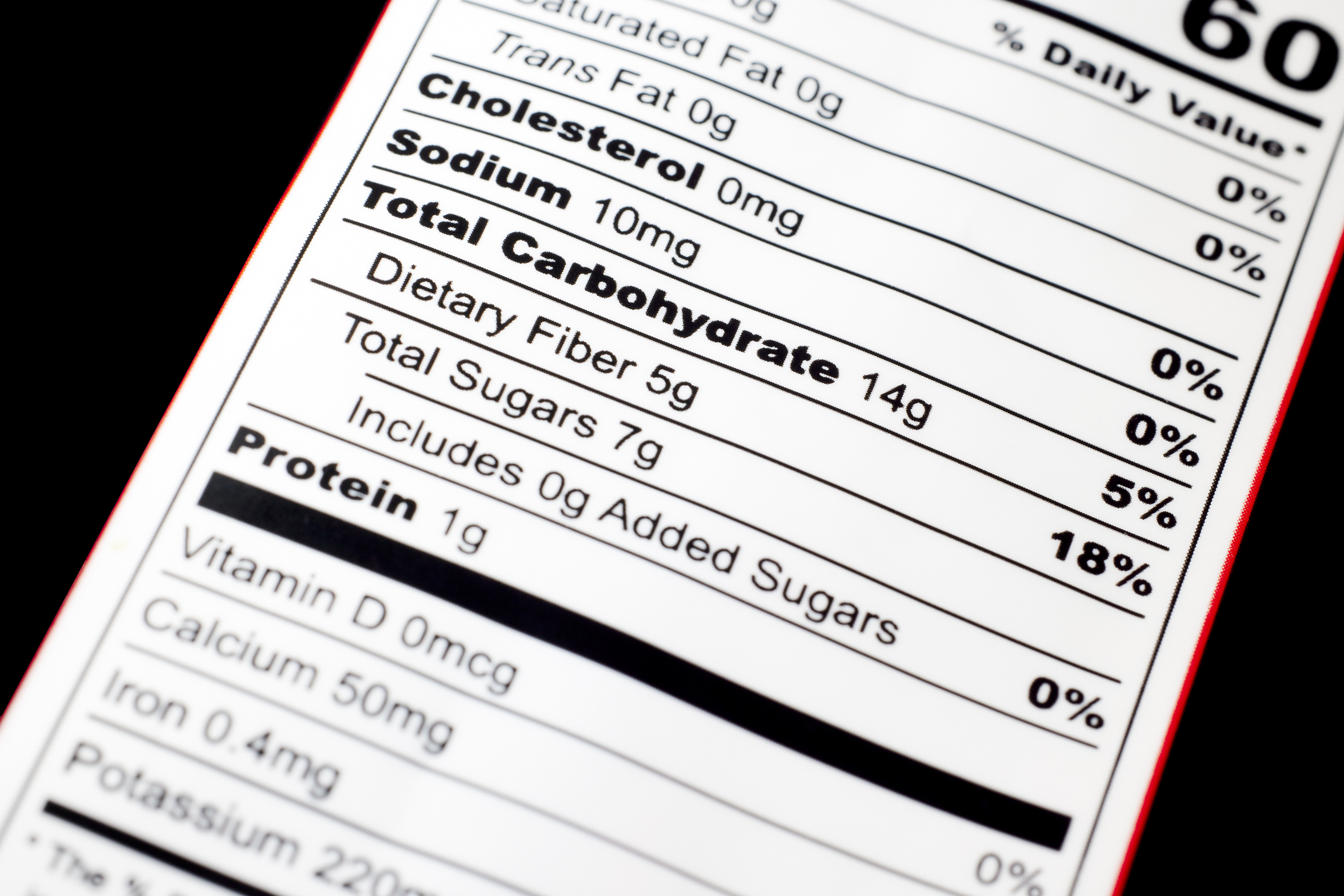
The food we eat impacts every aspect of our lives and our bodies: our hormones, brain chemistry, immune system, microbiome; the list goes on. As consumers, we deserve the right to easily understand our foods’ nutritional value in order to make informed decisions about what we consume and how that will impact our health and well being. This is especially important when it comes to ingredients that are detrimental when eaten in excess, such as sugar. As researchers in functional medicine, longevity, AI, and nutrition, as well as inventors of health-enhancing and life-saving solutions, we have dedicated our professional lives to improving the health and well-being of millions everywhere. And while we applaud the Food and Drug Administration (FDA) taking important strides to pass mandatory front-of-package labeling for packaged foods in the U.S., this is a change that cannot come soon enough. Everyone’s health depends on it.
The FDA recommends adults consume no more than 50 grams of added sugar per day (based on a 2,000 calorie diet), but the average American consumes closer to one-third of a pound of sugar daily, more than three times the recommended amount. To put that into perspective, the average American consumes over 100 pounds of sugar per person per year. With that much sugar consumption, it is no wonder that 49% of American adults are diabetic or pre-diabetic. What’s worse is that much of the sugar we consume occurs without our even realizing it. There are over 60 different ways sugar is identified on nutrition labels, making a consumer’s attempt to regulate their sugar intake unfairly complicated.
Extensive academic research published in medical peer-reviewed journals backs common knowledge that excess sugar consumption can lead to serious chronic conditions, as well as fatigue, anxiety, memory loss, ADHD, and even to a shorter life.
Seventy four percent of packaged foods in the U.S. contain added sugar, including seemingly healthy foods, such as salad dressing, coleslaw, and even baked beans, marinades, and yogurt; some sweetened yogurts contain more sugar than a can of soda. The fact that sugar is so biologically addictive — studies indicate it is eight times more addictive than cocaine — makes the reality that it’s hidden in so many foods even more harmful. Most of us are addicted to sugar and we don’t even know it.
This cycle of addiction is relentless and hard to break: we eat food with sugar, which then triggers a blood sugar spike, which lights up the pleasure center in our brain. When the inevitable sugar crash comes, we seek that spike again in the form of craving more sugar. Without easily discernible food labeling, shoppers unknowingly create this cycle inside their own bodies, even while they erroneously think the food they’re buying is healthy.
Read More: How the World Got Hooked on Sugar
In many countries, labels on packaged foods serve a similar function to labels on cigarette cartons: to warn consumers of risk. In Chile, a policy of “high in” labels on the front of sugary drinks dramatically reduced the consumption of those beverages. In Israel, a front-of-package labelling system, wherein a red label indicates an item high in sugar, has led to significant positive changes in 76% of the population’s food buying habits. We’re excited to see what a similar program in the U.S. would yield.
Those in the U.S. lobbying against this front-of-package change, unsurprisingly, have an interest in the continued popularity of their products. In a February 2023 joint filing, the nation’s largest cereal producers threatened a lawsuit after proposed changes would not allow them to label products as “healthy” if they didn’t meet nutritional standards.
This dynamic is similar to changes made in cigarette advertising in the 20th century. In the 1940s, a famous Camel cigarettes campaign featured the slogan, “More doctors smoke Camels.” By 1969, a mandatory warning label was added to cigarettes, giving consumers clearer access to information about risks, allowing them to make more informed choices about their health. Today the percentage of Americans who smoke is 11% compared to nearly 50% back in the day when “more doctors smoked Camels”. Life expectancy rose nearly 11 years in that span of time too, and the decrease in smoking certainly contributed.
While front-of-package labeling on packaged foods is a crucial first step towards a healthier society, education and awareness alone will only get us so far. To drive even more significant change in the way most Americans eat, a change that will lead to a healthier population, we must also incentivize the production and widespread distribution of healthier alternatives. These alternatives—a packaged cookie with healthier ingredients, for instance—must be just as delicious, and readily available as those loaded with sugar. The recently announced new standards by the U.S. Department of Agriculture (USDA) that will limit added sugars in school meals can greatly help with the availability of healthier alternatives, especially when children form their eating habits. For the rest of us, though, front-of-package labeling is an important step one in this journey towards national wellness and it will also encourage producers to create healthier options for consumers; readily available healthier alternatives is step two.
FDA leadership ensuring labeling of high contents of sugar in packaged foods could increase awareness and reduce the negative impacts of sugar and help millions live healthier longer lives. This change would help us make more informed choices about our food and our health. We believe it is our right, and every American’s right, to have clear and visible information about the sugar content of the foods we are eating in order to make those decisions.
More Must-Reads from TIME
- Cybersecurity Experts Are Sounding the Alarm on DOGE
- Meet the 2025 Women of the Year
- The Harsh Truth About Disability Inclusion
- Why Do More Young Adults Have Cancer?
- Colman Domingo Leads With Radical Love
- How to Get Better at Doing Things Alone
- Michelle Zauner Stares Down the Darkness
Contact us at letters@time.com